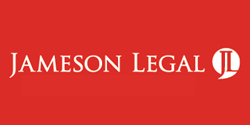DLA Piper has lodged a constitutional complaint on behalf of ProSiebenSat.1 TV Deutschland GmbH and SAT.1 Satelliten Fernsehen GmbH with the German Federal Constitutional Court in Karlsruhe. The issue relates to a recent amendment to the regional advertising regulations in the 18th Inter-Länder Treaty on Broadcasting (RÄndStV). Among other aspects, the broadcasters are contesting what they believe to be a violation of broadcasting freedom. The amendment, which came into force on 1 January 2016, restricts broadcasters from transmitting regional specific advertisements as part of their nationwide broadcasting schedules. This is where different television commercials would be broadcast simultaneously in different states.
The German Federal Administrative Court decided in mid-December 2014 that regional advertising of this kind was permissible in nationwide broadcasting schedules (Judgement of 17 December 2014 – ref. no. 6 C 32.13). The plaintiff, at that time, was ProSiebenSat.1 TV Deutschland GmbH, which succeeded in its leap-frog appeal before the Federal Constitutional Court. This was because the highest German administrative judges followed the legal interpretation of ProSieben that regional advertising is fundamentally permitted in nationwide broadcasting schedules, thus rejecting the contrary view held by the previous Court and the state media authorities. According to the interpretation of the Federal Constitutional Court, there should not be any separate authorisation requirement for regionally differentiated advertising. Instead, the subject matter of the licensing for a nationwide broadcasting channel should only concern the editorial content, not the advertising. The decision is regarded as a landmark ruling in broadcasting law.
In contrast, the new legislation, which is now being placed before the Federal Constitutional Court for review, is intended to preclude the nationwide broadcasters from having general access to regional advertising markets. Accordingly, regional advertising in nationwide broadcasting schedules is fundamentally prohibited and is to be permissible only if the relevant state law within the transmission area allows such practice. At the same time, an additional requirement is in place for private broadcasting channels to obtain separate authorisation under state law, with the federal states also being empowered to grant authorisation in specific cases.
Representing ProSiebenSat.1 TV Deutschland GmbH and Sat.1 Satelliten Fernsehen GmbH is the Hamburg Partner Dr Michael Stulz-Herrnstadt (Litigation & Regulatory). Dr Stulz-Herrnstadt successfully represented ProSiebenSat.1 TV Deutschland GmbH in 2014, as part of the leap-frog appeal proceedings before the Federal Constitutional Court. Supporting him in this case were the associates Christoph Engelmann and Judith Hoffmann (both Litigation & Regulatory, Hamburg).
